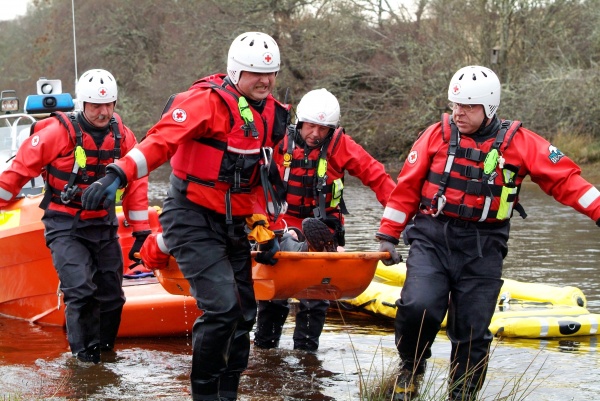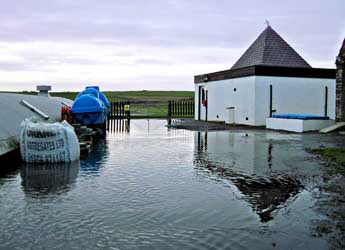
A partnership between the John Muir Trust and Mission:Explore – a group of teachers, artists, activists and adventurers – has launched a free ebook to introduce the great explorer, naturalist, writer, mountaineer and conservationist to a new audience.
Supported by Scottish Natural Heritage, Mission:Explore – John Muir, features a range of activities that reflect the adventures and ethos of the Victorian Scot, whose 175th birthday will be celebrated this month in his adopted homeland the USA as well as in the land of his birth.
It encourages people of all ages – including groups and families – to follow in the footsteps of Muir by taking part in an imaginative set of ‘missions’, which involve looking, touching, walking, exploring, thinking, and even dancing in wild nature wherever they find it.
Suggested activities range from observing how frogs swim to getting windswept, creating a mini-National Park, and staring at the stars.
The book launch ties in perfectly with Year of Natural Scotland 2013 and its theme of celebrating John Muir. There is already interest across the UK and in America.
Your ebook is free to download from Mission:Explore and John Muir Award web pages, and can be used on smart phones, laptops and tablets, or printed off and read in the old-fashioned way.
Link to John Muir Award launch page – http://www.jmt.org/jmaward-mission-explore-john-muir.asp
Link to Mission:Explore launch page – http://www.missionexplore.net/shop
Daniel Raven-Ellison, Guerilla Geographer at Mission:Explore, said: “Mission:Explore and the John Muir Award have much in common. We’re both all about discovering, exploring, conserving and sharing, so making this book together made perfect sense.
“We had a great time making it and we’re sure that our readers will have an even better time doing each of the quirky adventures inside. Good luck!”
“These missions are great, you can really see the spark they’ve generated with teachers.” Carol Walker, South Lanarkshire Outdoor Learning Development Officer
Featuring 20 activities that reflect the adventures and ethos of the Victorian Scot, you can access the free Mission:Explore John Muir eBook or PDF in a number of ways:
• eBook – on-line with Graphicly http://graphicly.com/mission-explore/mission-explore-john-muir/john-muir
• eBook for iPhone or iPad – via ‘Mission Explore John Muir’ in iTunes https://itunes.apple.com/gb/book/mission-explore-john-muir/id627660952?mt=11
• eBook from Amazon http://www.amazon.co.uk/s/ref=ntt_athr_dp_sr_1?_encoding=UTF8&field-author=The%20Geography%20Collective&search-alias=books-uk&sort=relevancerank
• Printable PDF version (5.3MB) from http://www.jmt.org/jmaward-mission-explore-john-muir.asp
Find hundreds of other missions on the Mission:Explore website http://www.missionexplore.net
About Mission:Explore
• Mission:Explore is a collection of books created by the Geography Collective, a unique team of over 25 geographers, teachers, educators and artists who work together to help young people explore and see the world in new ways. It makes books full of illustrated challenges that aim to make children a little more confident, happy, empathetic and knowledgeable.They think that learning in the real world, in real places and about real issues are vital to any childhood.
• Mission:Explore has won awards including National Trust & Hay Festival Outdoor Book of the Year 2011, and a Pink Stinks approved stamp for being gender neutral.
About Year of Natural Scotland 2013
• The Year of Natural Scotland 2013 is the latest in a series of themed years for the Scottish Government. It aims to highlight Scotland’s stunning natural beauty and biodiversity, and promote opportunities for visitors and residents to enjoy our beautiful landscapes, wildlife and heritage responsibly. http://www.snh.gov.uk/enjoying-the-outdoors/year-of-natural-scotland-2013
About The John Muir Trust
The John Muir Trust is the leading wild land conservation charity in the United Kingdom, with a membership of around 10,000.
We seek to ensure that wild land is protected and enhanced, and that wild places are valued by and for everyone.
The Trust does this by:
• Owning and managing wild land for conservation
• Assisting others in wild land management
• Campaigning for the long-term legal protection of wild land
• Encouraging people to connect with and care for wild places through the John Muir Award and volunteer conservation programmes.
We take our name and inspiration from John Muir (1838-1914), the pioneering, influential Scots-born American conservationist who dedicated his life to protecting wild places and campaigned successfully for the establishment of National Parks to safeguard vast tracts of wild land, including Yosemite Valley in California.
 – Glow Meet
– Glow Meet













































 An update on The James Hutton Institute’s Water Works competition with the announcement of the April winner.
An update on The James Hutton Institute’s Water Works competition with the announcement of the April winner.




















